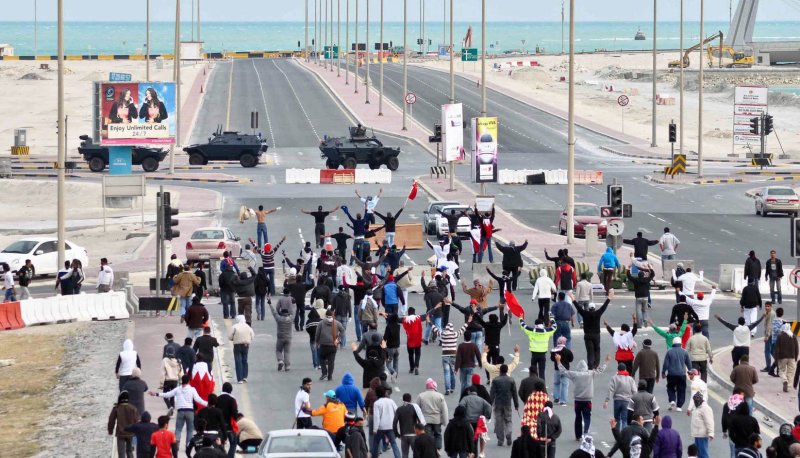1 of 5 | A protesters gestures to Bahraini police of Manama, on March 18, 2011. Thousands of Bahrainis gathered for the funeral of the demonstrator slain hours after the king declared martial law in response to a month of escalating protests. Shiites account for 70 percent of the tiny island's half-million people but they are widely excluded from high-level posts and positions in the police and military. UPI\Isa Ebrahim |
License Photo
WASHINGTON, May 5 (UPI) -- The ruling Sunni minority in Bahrain is intent on punishing anyone who speaks out in opposition to the government, Human Rights Watch said.
Two members of an outlawed Shiite al-Wefaq political party, Jawad Ferooz and Mattar Ibrahim Mattar, were arrested this week. The government banned the Shiite party and the opposition Islamic Action Society in April for breaking the law during mass protests and for inciting violence.
Wefaq in 2009 took 18 seats in the 40-member Parliament.
Human Rights Watch notes the arrests are the first in Bahrain that targeted elected officials.
Authorities in Manama are also under fire for allegedly targeting medical professionals after seven doctors were arrested during the recent crackdown.
Bahrain in the wake of revolutions in Tunisia and Egypt is struggling to suppress a Shiite uprising. Allegations surfaced that authorities are targeting hospitals and healthcare workers to hide the number of dead killed during the unrest.
Joe Stork, deputy Middle East director at Human Rights Watch, said in a statement that the "vicious" attacks by Bahrain authorities are an obvious attempt to silence dissent.
"The United States, the United Kingdom, France, and other governments that have security and military relationships with Bahrain need to declare publicly that these relationships are all suspended until the torture and other horrific abuses by the Bahrain authorities come to an end," he added.





